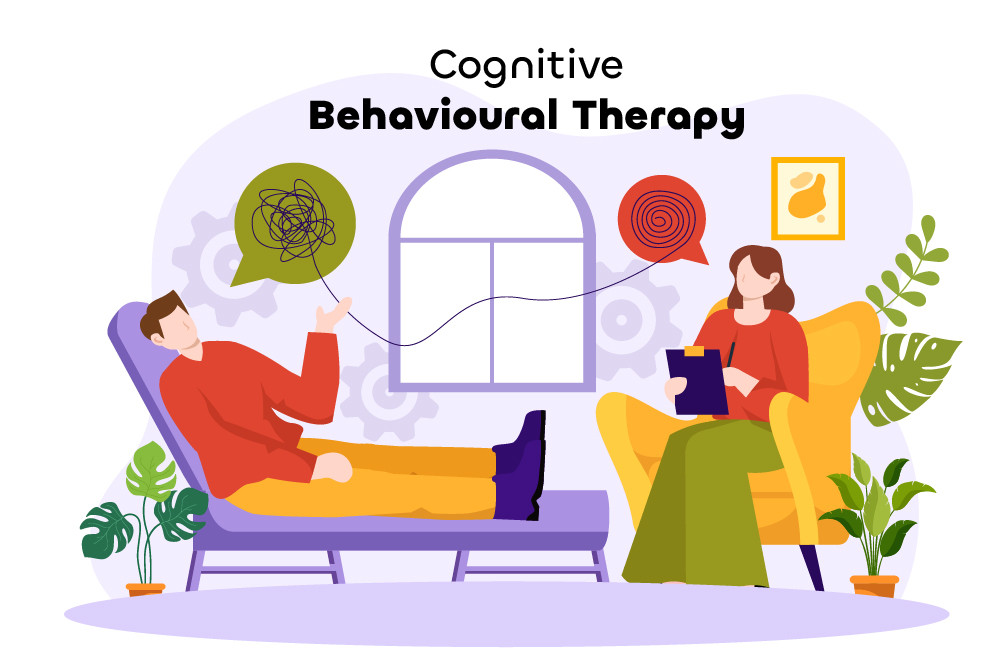
According to the World Health Organization (WHO), 1 in 7 adolescents face mental health challenges today. Students are under intense pressure — board exams, competitive tests, parental expectations, peer comparisons, and the constant race to “perform better.” For many, this results in exam anxiety, sleepless nights, low self-esteem, and in severe cases, depression or panic attacks.
Ignoring these warning signs doesn’t just harm academic performance — it can damage confidence, relationships, and overall mental health. This is where Cognitive Behavioural Therapy (CBT) steps in as one of the most effective, evidence-based psychological interventions for students.
What Is Cognitive Behavioural Therapy (CBT)?
Cognitive Behavioural Therapy (CBT) is a scientifically validated form of psychotherapy developed by psychologist Dr. Aaron T. Beck in the 1960s. It is structured, short-term, and solution-focused, making it highly effective for students who need practical support.
At the core of CBT lies the cognitive model, which explains that:
By challenging and changing unhelpful thoughts, we can improve how we feel and act.
For example, if a student believes “I am going to fail this exam no matter what,” that thought creates anxiety, which may lead to procrastination. CBT helps the student reframe the thought into “I can prepare step by step and improve my performance,” reducing stress and encouraging productive action.
This practical, skill-building approach is why CBT is considered one of the most effective methods for helping young people manage stress, anxiety, low confidence, and fear of failure.
Why CBT Matters for Students and Parents
For parents, CBT is not about “fixing” their child — it’s about giving them the mental strength to face life head-on.
Techniques of CBT That Work for Students
CBT is not abstract theory — it’s practical and relatable. Common strategies include:
These tools empower students to manage their struggles independently, even outside counselling sessions.
CBT in Academic Settings
Across the world, schools and universities are adopting CBT as a primary mental health support system. In India, however, awareness is still limited. With professional counsellors, CBT can be applied in:
By bringing therapy into educational spaces, students receive help before problems escalate into major setbacks.
Career Map’s Role in CBT and Psychological Counselling
At Career Map, the No. 1 career counselling organization in Odisha, we understand that career success begins with emotional well-being. That’s why we integrate Cognitive Behavioural Therapy (CBT) into our counselling services for students and young professionals.
Our Counselling Services Include:
By combining psychological counselling with career guidance, Career Map ensures that students don’t just find the right career path — they also build the mental strength to pursue it with confidence.
How Career Map Supports Students Through CBT
Why Parents Should Act Early
Mental health struggles in students often go unnoticed until they become serious. Parents may mistake exam stress for laziness, or anxiety for a “phase.” But the truth is: early intervention through CBT can prevent years of emotional struggle and academic decline.
For students, CBT is not just therapy, it’s a lifelong toolkit for confidence, resilience, and clarity.
To Summarize, CBT helps with:
At Career Map, Odisha’s most trusted provider of behavioural and psychological counselling, we are committed to giving students both career clarity and emotional stability.
If your child is struggling with stress, anxiety, or self-doubt, don’t wait. Take the first step towards mental well-being and career success with Career Map today.
BOOK A SESSION NOW!
Hello !!
I'm a Career Bee
